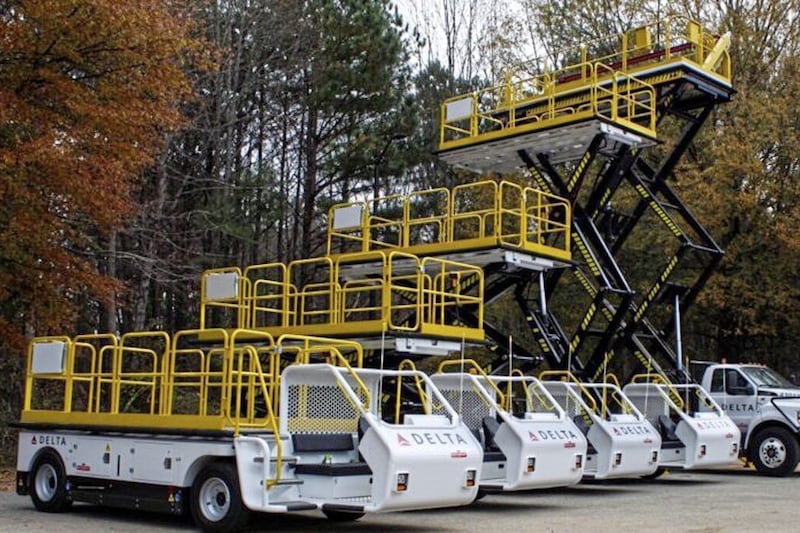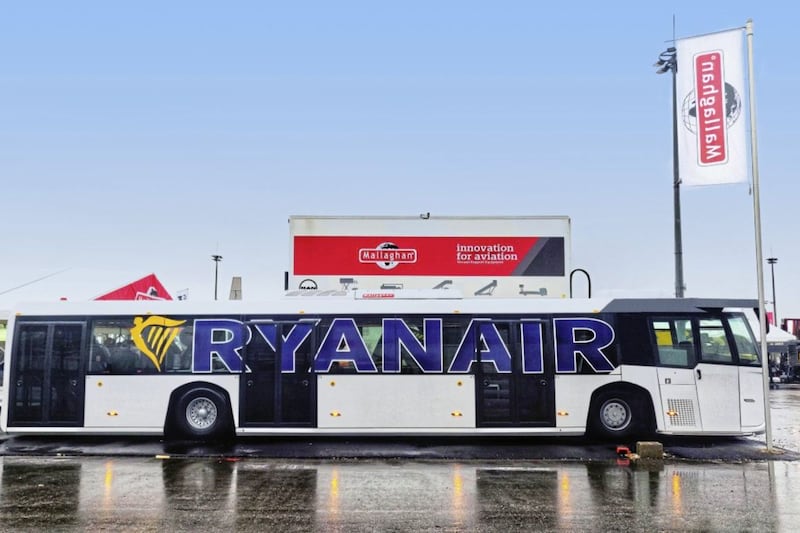CO TYRONE engineering firm Mallaghan has confirmed it will be forced to cut its workforce in the coming weeks after a 40 per cent hit to its revenues.
The Edendork-based company, which manufactures ground support vehicles for the aviation industry, has been among the worst hit by the impact of Covid-19 on the global airline industry.
Mallaghan halted production at its facility near Dungannon in mid-March, furloughing around 280 people. A small number were made permanently redundant.
The company has confirmed more job losses will be inevitable, but is yet unclear on the numbers. Ulster University’s Economic Policy Centre estimates that the north’s manufacturing sector will contract by 55 per cent in the second quarter, with a 27.5 per cent decline in the third.
In a separate study, the university estimated that 20 per cent of the working population of Mid Ulster has been furloughed.
The area is home to a number of major manufacturing firms including Terex, Sandvik and Mallaghan.
With the UK Government’s Job Retention Scheme gradually set to wind down from August through to October, the engineering heartland is braced for massive redundancies.
“Everybody is saying the same. Everybody has plans to downsize, to let people go, to react,” said Gerard O’Callaghan, Mallaghan’s chief financial officer.
“There is just not the demand and the requirement for people in the engineering space.”
The impact has been all the more acute in the aerospace sector, with Bombardier and Thompson Aero Seating already announcing 1,100 redundancies between them in recent weeks.
Mallaghan had grown into a world-leading supplier of everything from ground support catering equipment to stairs and baggage conveyors. More recently, it had moved into buses.
Last year saw global airline passenger numbers hit around 4.3 billion. Most projections for 2021 predict around 3.4 billion.
“That’s a massive decrease in the number of people using airlines,” said Mr O’Callaghan.
“It takes you back to 2014 levels. If you pro rata that up to any business supplying the aerospace sector, be it manufacturing, parts for airplanes, be it ground support equipment, there’s a massive knock-on impact.”

In simple terms, airlines are no longer spending cash. That has had serious implications for the supply chain, with Mallaghan caught up in the cash flow crisis.
“We won’t know until the back end of this year what size we need the business to be,” said the chief financial officer.
“If some of our geographic markets start to recover quicker, maybe it does give us a bit more optimism, and we won’t have to let as many people go, but at this point and time, it’s difficult to say.
“There will be further reductions, because the outlook is bleak in our sector.
“I don’t believe we’ll be back up at 2019 levels until maybe 2023-24. Even when I put my most optimistic hat on, I think it’s going to be very, very difficult.”
It’s understood that a number of former Mallaghan employees made redundant in mid-March are seeking to bring their case to an industrial tribunal, challenging the duration of the consultation process.
Companies are legally required to follow collective redundancy rules when 20 or more employees are laid off. Mallaghan has said less than 20 people were let go prior to lockdown in March.
The company has said it intends to continue to invest in the development of new electric vehicles in the hope of securing new orders once the rapidly evolving aviation industry recovers.
In the immediate term, Mr O’Callaghan says the banks and government schemes have offered much needed liquidity.
But he suggested that the government may need to consider thinking outside the box in the medium term by converting loan guarantees to some form of share equity.








